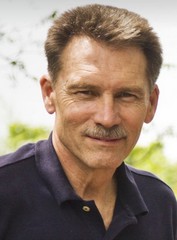Scroll down to see and play Audio.

Good morning my “Walking with Jesus” friends,
May I begin with a question? Do you know anyone who you would consider lives ‘above reproach’?
The Apostle Paul in writing his first letter to Timothy uses that high standard to be seen in those who would be selected to serve as what he calls ‘overseers’. Paul writes “Here is a trustworthy saying: If anyone set his heart on being an overseer, he desires a noble task. Now the overseer must be above reproach…” (1 Timothy 3:1,2)
Yesterday I suggested most Bible scholars view Paul as primarily speaking about those people in senior leadership of God’s people. The person or persons who are accountable to God for their leadership of what is referred to in verse 5 and 15 as “God’s church”. In Paul and Timothy’s day, those would have been gatherings of Christians who met in homes, since they did not yet have church buildings as we have today. Therefore an ‘overseer’ may have been responsible to ‘oversee’ many of these ‘house churches’ in a particular city.
Most churches today would view these ‘overseers’ as Pastors or Elders within the context of a local church. Their primary role is the spiritual nurture and leadership of a local church of God’s people. As we discussed yesterday, I propose that their leadership effectiveness is directly proportionate to their ability to discern and obediently follow the Holy Spirit of God leading them, as they then lead the people in knowing and following Jesus, who is the Head of His Church (Eph. 4:11-16).
Paul was commissioned by Jesus to take the Gospel all across the Roman Empire and gather together in each town, those people who responded to the Gospel and were saved by God’s grace. In Acts 14:23 we see ‘overseers’ or ‘elders’ were appointed by Paul in each of these churches, as he moved on from one town to another. “Paul and Barnabas appointed elders for them in each church and with prayer and fasting committed them to the Lord, in whom they had put their trust.”
So by the time Paul writes to Timothy, this office of ‘overseer’ or ‘elder’ was well established in many towns. As the church continued to reproduce, Paul was no longer personally able to select ‘overseers’, so the Holy Spirit led him to outline criteria for their selection. Here in 1 Timothy 3, as in Titus 1, Paul goes into some detail describing the character traits of a person whom he viewed as qualified to be considered for this high and holy calling of “overseer”, beginning with the phrase “Now the overseer must be above reproach…” That one little phrase sets a very high standard doesn’t it? What does “above reproach” mean to you?

As I’m sure you know, there has been much debate over the years regarding the exact meaning, both then and in our day, of each phrase in this list of qualifications. Having spent a good bit of my life in the world of global missions, I offer you this thought for consideration: With the spread of the Gospel, Jesus’ church has been established in the biggest most complex cities, and the wildest, untamed jungles. Among the most intelligent people and among the illiterate. Among the most sophisticated people and among cannibalistic tribes.
As the Word of God is translated into the languages of all these various people around the world, these criteria for “overseer” here in 1 Timothy 3 are evaluated within widely diverse cultures as Christianity takes root in those cultures. It is fascinating to me how in all these cultures, the application of this list usually identifies those persons in whom the Holy Spirit of God has been doing a remarkable sanctifying work of refining them into God honoring people. The Holy Spirit does a remarkable work in helping people in very different cultures understand what these criteria mean in their culture. I have also seen these other attributes consistently in those who aspire to ‘overseer’, everywhere in the world…
1. They have a profound respect for the Majesty and Holiness of God, and a deep desire to honor Holy God in every aspect of their lives.
2. A deep hunger to immerse themselves in God’s Word for understanding and spiritual growth, but also to use God’s Word as a penetrating light as they seek to find anything in their lives which would dishonor God.
3. Humble and a teachable spirit, very willing to receive words of advice, or even rebuke if based in Scripture, as they long for their lives to be honoring to God for His glory and to be ‘above reproach’.
4. I also see an absence of pride, self-advancement or any attitude or behavior that would breed discord among God’s people or bring dishonor to Jesus Christ their Savior.
As I did yesterday, may I invite us to consider what the culture in which you live would be like if these same attributes applied to ALL people in any role of “overseer” in your society? Any person who has the responsibility of giving oversight to other people in the marketplace, in government, or education or even in the home as we raise our families? Many of you are the patriarch or matriarch of your extended family. They look to you as their family leader. What effect would it have on your family if these traits were describing you? Many of you are in leadership roles in business or healthcare or education or social order, what if these traits were yours?
You’ll notice in verse 8 Paul identifies a second category of leaders whom he calls “Deacons”.We find their role first in Acts 6 in the rapidly growing movement of Jesus followers in Jerusalem. More than 5000 people had responded to the Gospel and those men who had been Disciples of Jesus were then called Apostles and they were simply were overwhelmed with all that they felt needed to be done to be faithful to what Jesus had commissioned them to do. So in Acts 6 they called for a group of Christian men “…who are known to be full of the Holy Spirit and wisdom…” to whom they could entrust the practical response to the needs of the growing number of Christians, in particular the widows, while they prioritized prayer, teaching the Word of God, making disciples, as Jesus had instructed them.

Again, here in 1 Timothy 3:8-10 and 12-13 Paul describes the type of men whom he believed could be considered for this important role of Deacon in all the churches. So we see two distinct roles of leadership to serve and lead the people of God within the framework of local churches, as Paul instructs Timothy whom he left in Ephesus to teach and train the house churches there.
You’ll notice in vs 11 Paul speaks of the wives of these men, and most Bible scholars believe Paul intended this for both “overseers” and “deacons”, since he inserts it in the flow of verses speaking of “deacons”. “…their wives are to be women worthy of respect, not malicious talkers but temperate and trustworthy in everything.” It’s clear the Holy Spirit was leading Paul to give instructions about both husband and wife, in the case of married “overseers” and married deacons, since their marriages would serve as exemplary for others in the churches.
Finally, would you consider the closing verse of 1 Timothy 3. It’s a very powerful statement. “He (Jesus) appeared in a body, was vindicated by the Spirit, was seen by angels, was preached among the nations, was believed on in the world, was taken up to glory.” Wow! In one sentence Paul summarizes powerfully the earthly mission of Jesus, the Gospel, which he had made his life purpose to proclaim to any and all who would hear him, anywhere Jesus led him, all across the Roman empire. And it’s our great privilege in our day, isn’t it? Now, you know what change that has brought to your life, your family, your community, the culture in which you live…. how significant has it been?
In closing to day, I invite you to take 2 minutes to see what a DRAMATIC impact this Gospel has had, in our lifetime in a remote place in the world, where in one generation people are transformed from cannibals to Christ followers. Here’s a video clip just produced by the mission organization I serve with presently. I happen to know personally, some of the missionaries who were the first to enter these jungles. It will stir your heart to celebration:
Attachments area
Have a comment or question about today’s chapter? I’m ready to hear from you, contact me here.
 Pastor Doug Anderson 262.441.8785
Pastor Doug Anderson 262.441.8785
“Let us run with perseverance the race marked out for us, with our eyes fixed on Jesus…” (Heb. 12:1,2)
Archived back issues of “Walking with Jesus” and other resources are available by clicking here to open our ‘home page’ (or go to HOME at upper right of this page).
Share with friends. Subscribe below for daily “Walking with Jesus”.

